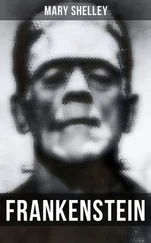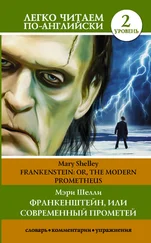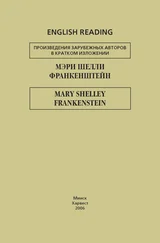Mary Shelley - The Fortunes of Perkin Warbeck
Здесь есть возможность читать онлайн «Mary Shelley - The Fortunes of Perkin Warbeck» — ознакомительный отрывок электронной книги совершенно бесплатно, а после прочтения отрывка купить полную версию. В некоторых случаях можно слушать аудио, скачать через торрент в формате fb2 и присутствует краткое содержание. Жанр: unrecognised, на английском языке. Описание произведения, (предисловие) а так же отзывы посетителей доступны на портале библиотеки ЛибКат.
- Название:The Fortunes of Perkin Warbeck
- Автор:
- Жанр:
- Год:неизвестен
- ISBN:нет данных
- Рейтинг книги:3 / 5. Голосов: 1
-
Избранное:Добавить в избранное
- Отзывы:
-
Ваша оценка:
- 60
- 1
- 2
- 3
- 4
- 5
The Fortunes of Perkin Warbeck: краткое содержание, описание и аннотация
Предлагаем к чтению аннотацию, описание, краткое содержание или предисловие (зависит от того, что написал сам автор книги «The Fortunes of Perkin Warbeck»). Если вы не нашли необходимую информацию о книге — напишите в комментариях, мы постараемся отыскать её.
The Fortunes of Perkin Warbeck — читать онлайн ознакомительный отрывок
Ниже представлен текст книги, разбитый по страницам. Система сохранения места последней прочитанной страницы, позволяет с удобством читать онлайн бесплатно книгу «The Fortunes of Perkin Warbeck», без необходимости каждый раз заново искать на чём Вы остановились. Поставьте закладку, и сможете в любой момент перейти на страницу, на которой закончили чтение.
Интервал:
Закладка:
Maternal tenderness touched to the quick the royal lady's heart, and she wept. Lady Brampton was all impulse and goodness of disposition: she felt that Elizabeth had wronged her, but in a moment she forgave the offence: she advanced, and kneeling at her feet, touched her hand gently, as she said, "Let not your Grace judge too harshly of our proceedings. We poor faulty human beings, hurried hither and thither by passion, are for ever jostling against and hurting each other, where more perfect natures would coalesce, and thus succeed where we fail. Forgive, forget the past: it cannot now be changed. Forgive the Earl, who, long bound by an oath to his uncle Gloucester, could only save your son's life by feigning his death. Forgive the humblest of your servants, even myself, who acted under his commands, and who now, in disobedience to them, attempts to bring the royal exile to his mother's arms. Would that my humility could appease your displeasure, and that you would acknowledge me your faithful follower. My life should be at the disposal of you and the princely York."
Lady Brampton, full of vivacity, energy, and even of imperiousness, had so much grace in her manner and sweetness in her voice, when she laid these keen weapons aside to assume those of gentleness and love, that she was irresistible. The Queen, at once softened, stretched out her hand, which the lady pressed respectfully to her lips; then, as friends bent on one design, they conversed unreservedly together. Lady Brampton entered into long details concerning the past history of the Duke of York, and the schemes then on foot for his advancement. This was not their sole interview; they met again and again, and mutual affection confirming the link which the fate of Richard caused to exist between them, the Queen named the Lady Brampton one of her ladies, and henceforth they lived together under the same roof.
Chapter
5
Poor orphan! in the wide world scattered.
As budding branch rent from the native tree.
—Spenser.
England, farewell! thou, who hast been my cradle.
Shalt never be my dungeon or my grave!
—SHELLEY.
The historical account of Lord Lovel's insurrection is contained in a few words. While the two Staffords besieged Worcester, this nobleman advanced against Henry in York. The Duke of Bedford was sent against him, who published a general pardon for all the rebels who should submit. The soldiers of Lord Lovel had no powerful watch-word to ensure their union; the existence of Edward the Fourth's son was a profound secret; they were therefore easily induced to abandon an almost nameless cause; and in three weeks Lord Lovel found himself with only one hundred adherents, or rather personal friends, who at his earnest entreaty disbanded, while he, chiefly bent on saving the life of his princely charge, felt greater security in being left singly with him.
He had promised to traverse England, and to conduct him to Winchester; but the hot pursuit on foot forced him to delay this journey. Meanwhile a present refuge was to be sought. He had a staunch friend in a zealous Yorkist, Sir Thomas Broughton, who resided in Lancashire, to whose residence he directed his steps. Still, even during this short journey, great precaution was necessary. Lord Lovel and his charge travelled disguised, avoiding high roads and great towns. On the second evening, when the red aspect of the setting sun threatened an inclement night, they took shelter in a lone cot on one of the wild moors of that county.
A long habit of personal attendance had instilled into Lovel's mind a parental affection for the little prince. They had journeyed far that day, and Richard was overpowered by fatigue; his friend strewed for him a bed of leaves—he stretched himself on it, and quickly fell into a sound sleep, while the noble kept up the fire he had lighted, and paced the hut, revolving in his mind a thousand schemes. It was a chill February evening; and, as night came on, a thick sleet beat against the windows, while the wind, sweeping over the wide heath, howled round the miserable shepherd's cot. Some time passed thus, and fear in Lovel's mind gave place to the sense of security, inspired by the desolation of the spot and the inclemency of the elements. He needed rest, and as soon as he had thrown himself on the ground, drowsiness overpowered him—the wind sang a wild lullaby to both the sleepers.
Though still lost to the outer world, a change passed over Lovel's countenance—again his features relaxed into sleep, and again expressed disquietude. The tramp of horses' feet was around the hut—voices mingled alien sounds with the raging blast;—at last a loud knocking at the door caused the noble at once to start on his feet wide awake. Richard still slept on. Lord Lovel cautiously withdrew into the shadow behind the door, listening intently to divine the motives of these unwelcome intruders. He felt assured that they were emissaries of Henry, who had traced him hither; he endeavoured to form in his mind some plan of conduct to save the duke, whom he was about to awaken and put on his guard, when a woman's voice struck upon his ear. The knocking at the door was changed into a violent beating, the rude hinges gave way, and it swung back. The fugitive's heart beat quick; it was a moment full of fate; such a one, as when passed, we seem to have concentrated a life into its small space. The man that entered calmed his fears; low in stature, broadly built, a cloak lined with furs added to his bulk, and a Flemish hat completed his peaceable appearance; though he was too much muffled to shew his face. Glancing at Lovel a look which was, doubtless, intended to convey reproach, he muttered some words in a foreign guttural language, and went back to his companions. Two women now entered, both enveloped in furs. One stept lightly on, and drew the bench which had lately pillowed the head of Lovel, closer to the fire, while the other, bending under the burthen in her arms, approached slower, and sitting down on the seat prepared for her, threw back her cloak, and discovered that she bore in her arms a sleeping child, about six years of age. The first, meanwhile, disencumbered herself of her rich furs, and then leaning over the child, kissed its little hands, and regarded its sleeping form with mingled anxiety and tenderness, speaking to the other in a foreign dialect, evidently about the risk the poor babe had ran from exposure to the weather. Lovel remained a mute spectator; he resolved not to come forward, till he should see who their male attendants were. After a brief interval the first intruder again entered; he threw off his cloak, and looking round with keen eyes, the fugitive discovered the well-known features of a friend-His heart now relieved, his countenance lighted up, and he stept forward, saying: "Mynheer Jahn Warbeck, God be with you! you travel on a stormy night."
"And you, Lord Lovel," replied the moneylender, angrily, "are sufficiently discourteous to wanderers at such a season. Why even vipers are harmless during a storm."
"But fair weather returns, and they again find their sting. I might bare my own breast, but—" he pointed to the bed of leaves, on which, in spite of the tumult, young Richard still slept.
Warbeck started: but before he could reply one of his companions turned to speak to him, and a conversation ensued, begun in Dutch, and continued in French, concerning the circumstances which had divided them from their attendants, and their fatiguing wanderings during the storm. A small saddle-bag was produced by Warbeck, containing a few provisions. A bed for the sleeping child was formed, and the travellers sat round the fire, enjoying their simple fare. From time to time the fair blue eyes of the younger lady, who was evidently the mistress, and the other an attendant, turned to look on the chivalric form and manly beauty of Lovel; a few smiling observations escaped her in her native language, which Warbeck answered drily and succinctly. The bench on which the lady sat was soon sacrificed for firing—the cloaks of the party were dried, and the women, wrapt in them, sought repose on the bare ground, which was the sole flooring of the hut, the younger drawing to her bosom the sleeping child. Lovel and Warbeck kept silence, till the deep breathing of their companions shewed that they slept: then, in reply to the Fleming's questions, Lovel related the history of the last months, and at the conclusion frankly asked his advice and assistance in accomplishing his design of conveying the Duke of York to Winchester. Warbeck looked thoughtful on this demand, and after a pause said "I cannot say wherefore this unfortunate prince excites so strong an interest in me; for in truth my heart yearns towards him as if he were akin to me. Is it because he bore for a time my poor boy's name?"
Читать дальшеИнтервал:
Закладка:
Похожие книги на «The Fortunes of Perkin Warbeck»
Представляем Вашему вниманию похожие книги на «The Fortunes of Perkin Warbeck» списком для выбора. Мы отобрали схожую по названию и смыслу литературу в надежде предоставить читателям больше вариантов отыскать новые, интересные, ещё непрочитанные произведения.
Обсуждение, отзывы о книге «The Fortunes of Perkin Warbeck» и просто собственные мнения читателей. Оставьте ваши комментарии, напишите, что Вы думаете о произведении, его смысле или главных героях. Укажите что конкретно понравилось, а что нет, и почему Вы так считаете.












